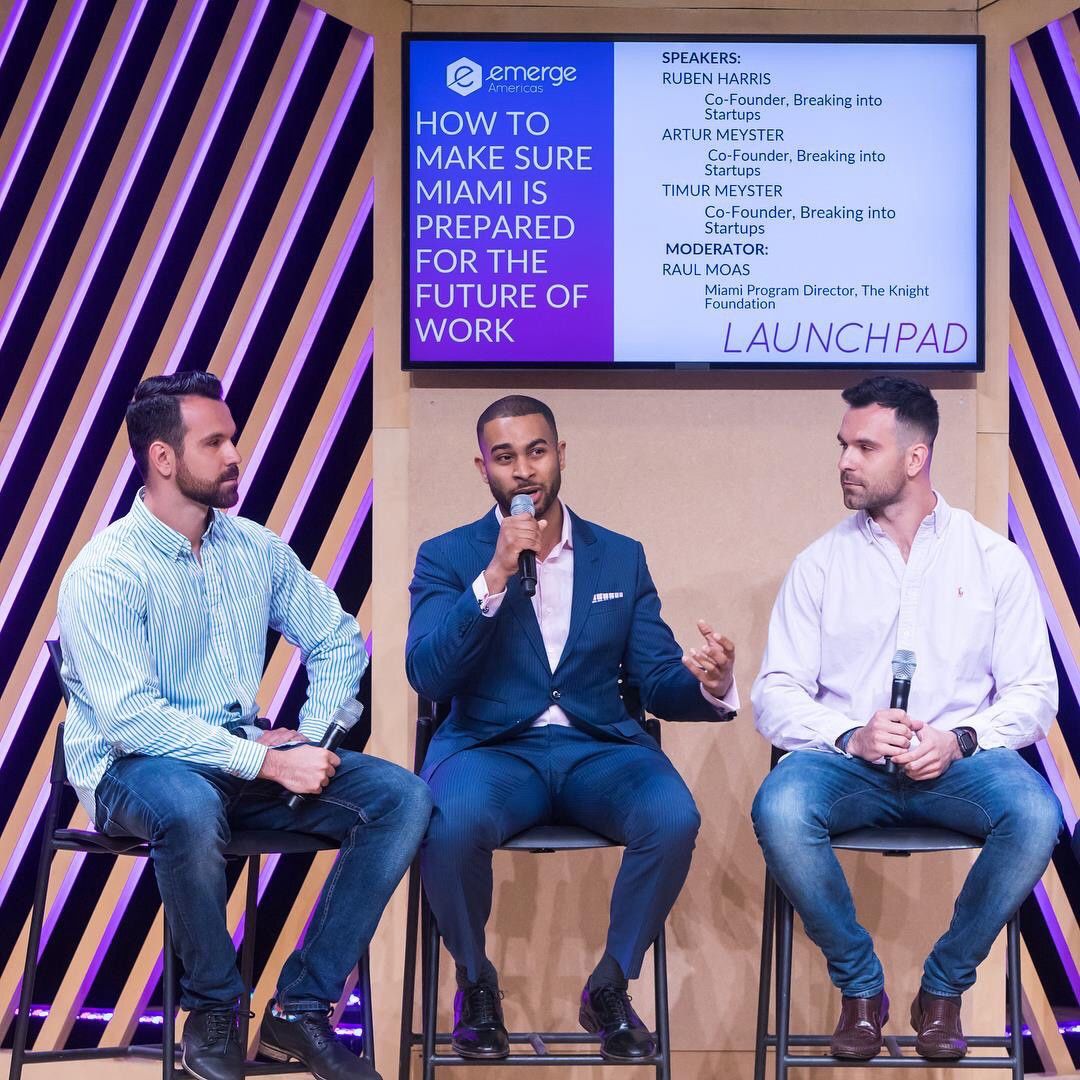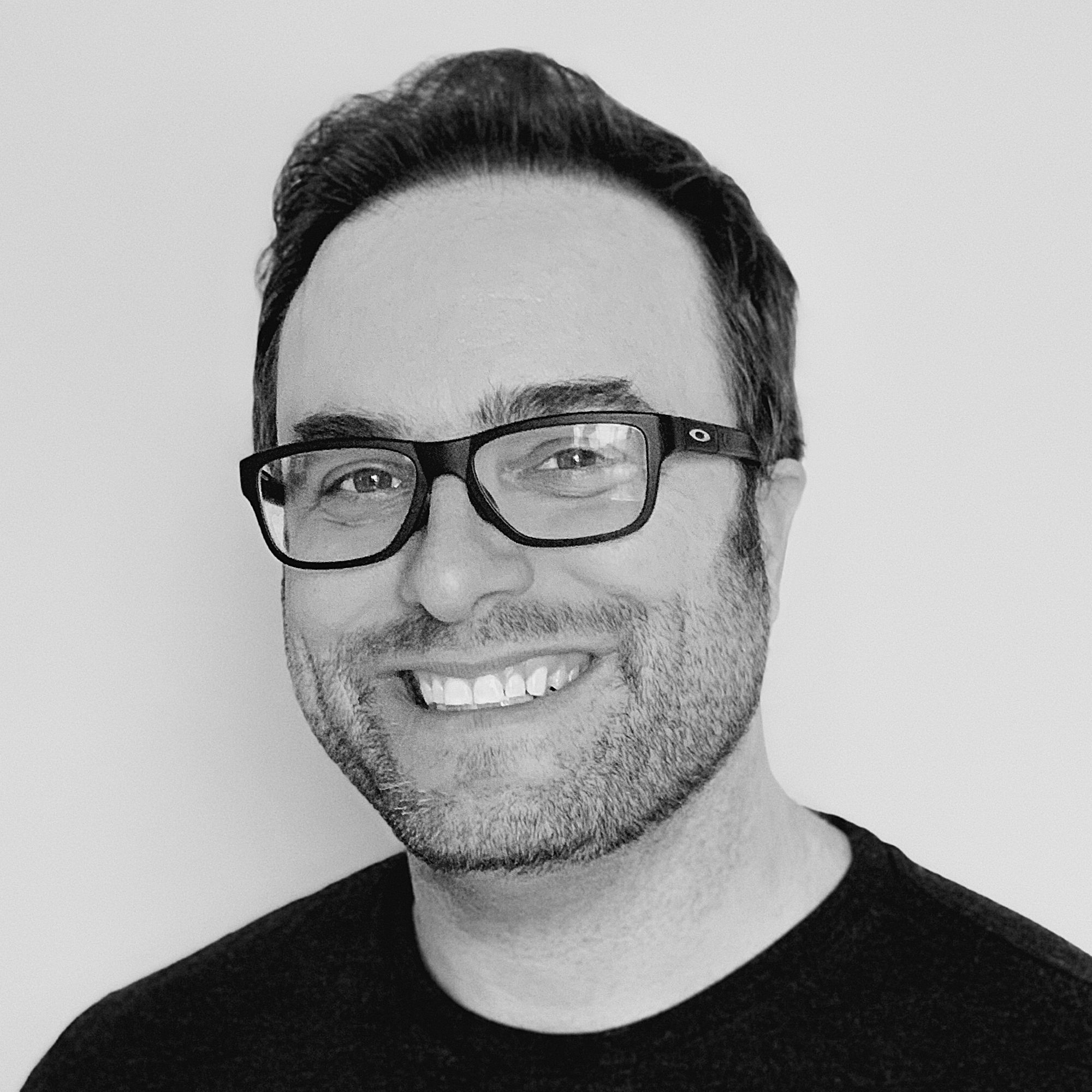In this week's episode of the freeCodeCamp podcast, I interview Ruben Harris.
Ruben runs Career Karma, a social network for people interested in attending coding bootcamp. He also hosts the Breaking into Startups Podcast.
Ruben just finished Y Combinator, a startup accelerator, where he and his team raised their first round of venture capital funding.
Ruben grew up in Atlanta and worked in finance. He met his future co-founders - Ukrainian-born brothers Artur and Timur Meyster - years ago. The three of them agreed to spread out, get jobs in different industries, then later regroup to build a startup together.

In this interview, Ruben shares his insights on coding bootcamps. He also shares what he learned going through Y Combinator. And he talks about his close bond with his co-founders.
Communication and the power of stories
Ruben attributes much of his success to his skill at telling stories - a skill he still works to refine every day.
"It's easy to think that the way you're going to rise is through your skills technically. But the way that you rise is actually through your non-technical skills and understanding how to communicate and be creative and manage your perception - which is also your story."
Ruben failed to get into Y Combinator the first time he applied. He attributes this failure to challenges he faced when communicating what Career Karma did and the value it could provide people.
He and his team had the coding chops. They knew a lot about higher education. They understood the role coding bootcamps played in the labor market. But they had trouble conveying all that.
Ruben pinpointed communication as the thing that was holding him back. He said the team made a decision to "recognize that we may not have everything figured out. And investing time in figuring it out will pay dividends later."
His hard work did indeed pay off. Career Karma got into Y Combinator, secured investors, and have been growing since.
Breaking into Startups
Before Career Karma, Ruben, Artur, and Timur created a tech career podcast called Breaking Into Startups.
Ruben says was inspired to start this podcast after moving to San Francisco and getting a job in tech. He realized how bad most of the advice out there was for people who were looking to do the same.
"The advice that was given to me was if you want to break into tech, just move to the west coast, this magical place. You'll figure it all out. But for most people that's toxic advice. Most people will go through a psychological breakdown trying to make that transition happen. And the industry will chew them up."
He wanted Breaking Into Startups to give people a more realistic glimpse into what career change was like.
"We wanted to start documenting those stories on the podcast because the tech media wasn't really covering a lot of those stories. We realized for us to understand the shifts, it was important to talk with other people that were like us, who figured out how to get into these companies. So that's why we started featuring stories from people who were older or younger, from different sexes and religions, veterans. And we created a podcast around that became a source of truth and tactical advice that didn't really exist anywhere else."
After having recorded more than 100 episodes over a span of 3 years, Ruben summarizes the commonalities between many of his guests:
"At the end of the day, nobody has it all figured out. And similarly, when you're in a coding bootcamp or you're trying to learn a new skillset, you get imposter syndrome. But what actually eliminates impostor syndrome is realizing that everybody's lost."
He continues:
"If you feel comfortable, that's your body telling you that you're ready to push harder. You're not growing. Challenges give you growth. And growth is life."
Vocational Training as a Path to A Better Career For Millions of Americans
Ruben - himself a university graduate - is a champion of vocational education.
Pointing out that more than 7,000 Americans drop out of high school every day, Ruben says:
"The only way to level up is through education. And I think that form of education is going to be a bootcamp that's run on its own, a bootcamp that's run by a college. I actually think that the big future is going to be employer-as-payer model. And you can see that with Adobe doing Adobe Digital Academy, you can see that with Microsoft, you can see that with Cognizant. With all kinds of things like that."
He continues:
"And the reason I think that is in the US alone, over $1 trillion is spent on post-secondary education. A lot of that training and education comes from corporate America. Companies are going to realize that they have to build talent in addition to buying talent. They spend so much money on university recruiting and events that have a very low return-on-investment. I think that apprenticeships are at the same stage that bootcamps were in 5 years ago, and they're going to become more and more en vogue."
Listen to the full interview
These are just some of the insights Ruben shared during my interview with him.
We also talked about his life growing up in Atlanta and the role of his parents and his faith.
I've learned a lot from Ruben over the three years I've known him, and I think you'll learn a lot from him to.
This interview is a 75 minute listen in your favorite podcast player app - just search for "freecodecamp" and you should find it.
If you have an Amazon Echo, you can just say "Alexa - play the freeCodeCamp podcast."
Or you can listen to it right here in your browser.
Other helpful links
You can listen to Ruben interview me back in 2017 on this episode of Breaking into Startups (50 minute listen).
During the podcast, Ruben also mentioned an interview he did with Gary Vaynerchuk (45 minute listen).
Ruben mentioned this article by his co-founder Artur Meyster, about his life after completing a coding bootcamp.
Finally, you can follow Ruben on Twitter.

